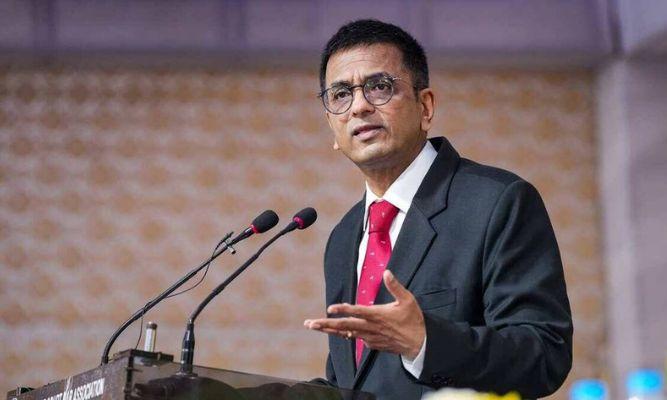
Privacy no veil for rights infringement: CJI on gender gap
text_fieldsBengaluru: Chief Justice of India DY Chandrachud opined that the law must address the gender inequality that prevails within households. Speaking at a memorial lecture at the National Law School of India University, Bengaluru, he said that the popular notion that what men do is public and what women do is private does not apply in a society governed by constitutions, NDTV reports.
Delivering the lecture held in memory of India's 19th Chief Justice ES Venkataramaiah, Chandrachud said that privacy must not be a cloak to veil infringement of rights inside households. The purpose of law must be safeguarding participants in both private and public spaces, he said, adding that he will look at gender discrimination from the perspective of the public and private divide.
For freedom of expression to truly exist, it has to exist in both private and public spaces. By stating private, he meant the private spaces inside a household. According to him, if the hierarchy exists inside private space and the law chooses not to mind it in the name of the sanctity of the household, it would be a failure of the law's promise of equal protection.
CJI said that the private space of the household is a site of economic activity for a homemaker who is not paid for her service. Also, if women are confined to service-oriented and sexualised occupations, both places have infringed on women's rights. If the law only chooses to interfere in the latter case, that law would be unjust, Jus Chandrachud said.
He believes that technology has ended spatial constraints, and laws must identify the oppressed and oppressor without mattering the space they belong.
"The aged notion that what men do is public, and what women do is private has no application in a society governed by constitutions," NDTV quoted him.
He added in the end that the said gender pay gap is pronounced in Indian society. He said that Indian women, mostly belonging to marginalised communities, suffer from this, despite their significant contributions to different professional spheres. They continue to face disparity in remunerations, he said.






















